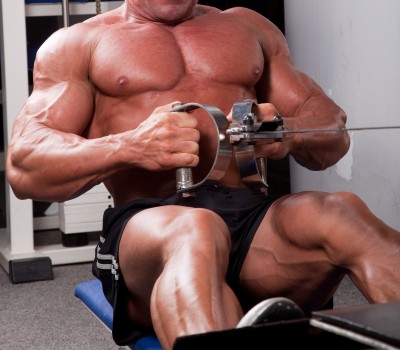Have you ever wondered about the effects of HGH on athletes? Does HGH actually work and is it banned for use by pro athletes? Good questions – read on to learn more In May of 2010 a Canadian doctor, responsible for treating pro U.S. athletes found himself facing charges relating to the illegal distribution of HGH or human growth hormone. 
There are claims that among Anthony Galea’s patients were high profile names like Alex Rodriguez and Tiger Woods. However, both the doctor and patients acknowledge being treated by Galea, but say they did not use human growth hormone. And while some claim that the human growth hormone does nothing, one must question if it has no affect why so many athletes are turning to it, whether they wish to admit so or not.
Great, so let’s instead look at the research to see whether the human growth hormone works on athletes. One study published in 2007 in the New England Journal of Medicine, showed that HGH had an anti-aging benefit to men over the age of 60. This study was done about twenty years ago, and when this information first became known, it created an entire industry, and let’s be honest, not all of it was legitimate.
Ads with 40-year bodies on 65-year-old heads seemed to be showing up everywhere, and some of the claims were simply outrageous. In fact, it leads to a warning being appended to the New England Journal of Medicine study, stating that the research was being used in a misleading way in ad campaigns.
But, still according to the Wall Street Journal Health Blog, there didn’t seem to be a lot of evidence that confirmed that the human growth hormone did a lot for athletes, in terms of running faster, hitting more home runs, or jumping higher. That is until just recently when the results of a current randomized trial become available.
The World Anti-Doping Agency sponsored this randomized trial that included over 100 recreational athletes and involved both men and women. We should note that the World Anti Doping Agency is actually the organization that bans competitive athletes from using HGH. The results were published in the Annuals of Internal Medicine.
The study found that sprinting ability was improved by about 4% when HGH was taken. Men who also receive testosterone injections saw a remarkable 8% boost in their performance sprinting. However, researchers said that in order to determine the safety of HGH a much larger study would be necessary. The side effects that were seen in this small group where considered minor and including joint pain and joint swelling.
It is unclear whether these results would translate to the elite athletes, but researchers did say that this small improvement would actually be enough to make the difference between finishing in last place, and winning.
Enhancements
With the increasing demands on athletes to go faster and do better, it should be no surprise that athletes are turning to tools that can boost their performance, and HGH is one of those products. Of course, there’s also a great deal of controversy over its use.
Just like its name suggests human growth hormone is responsible for all aspects of growth including cells, tissues, bones, and muscles. Another study published in the New England Journal of Medicine did say that. It was a study that involved 21 men who took a regular HGH dosage. Many experienced both a decrease in body fat, and an increase in lean mass. Therefore, the study concluded that it believed the human growth hormone was effective.
Recovery from Injury
HGH plays an important role in recovery from injury. There is both practical and theoretical evidence that backs this statement. One of the Miami Dolphins football players had his knee literally destroyed. He underwent a number of surgeries in hopes of a full recovery. Finally, Abdul-Karim al-Jappar looked to HGH as his last option. With regular HGH injections, his knee problem began to disappear. While this is a single case, it provides concrete evidence that HGH works on injury recovery.
HGH is a natural substance produced by the pituitary gland. The problem is by the time we reach our 30s the production of HGH is already on the decline. For athletes this can lead to a higher incidence of injuries, less muscle mass, more body fat, slower reaction times, and less energy.
HGH Can help to keep you more youthful and it can help athletes perform much better. However, HGH is banned from professional sports. That means while athletes may not be able to enjoy the benefits, there is no reason why you can’t. You can reap all of the benefits and if you participate in sports just for fun, you’ll see improvement.
HGH shows excellent results in slowing the aging process, and it certainly could be a tool to athletes if they chose to use it.












HGH certainly must have some effects on athletes otherwise why all the controversy surrounding it.